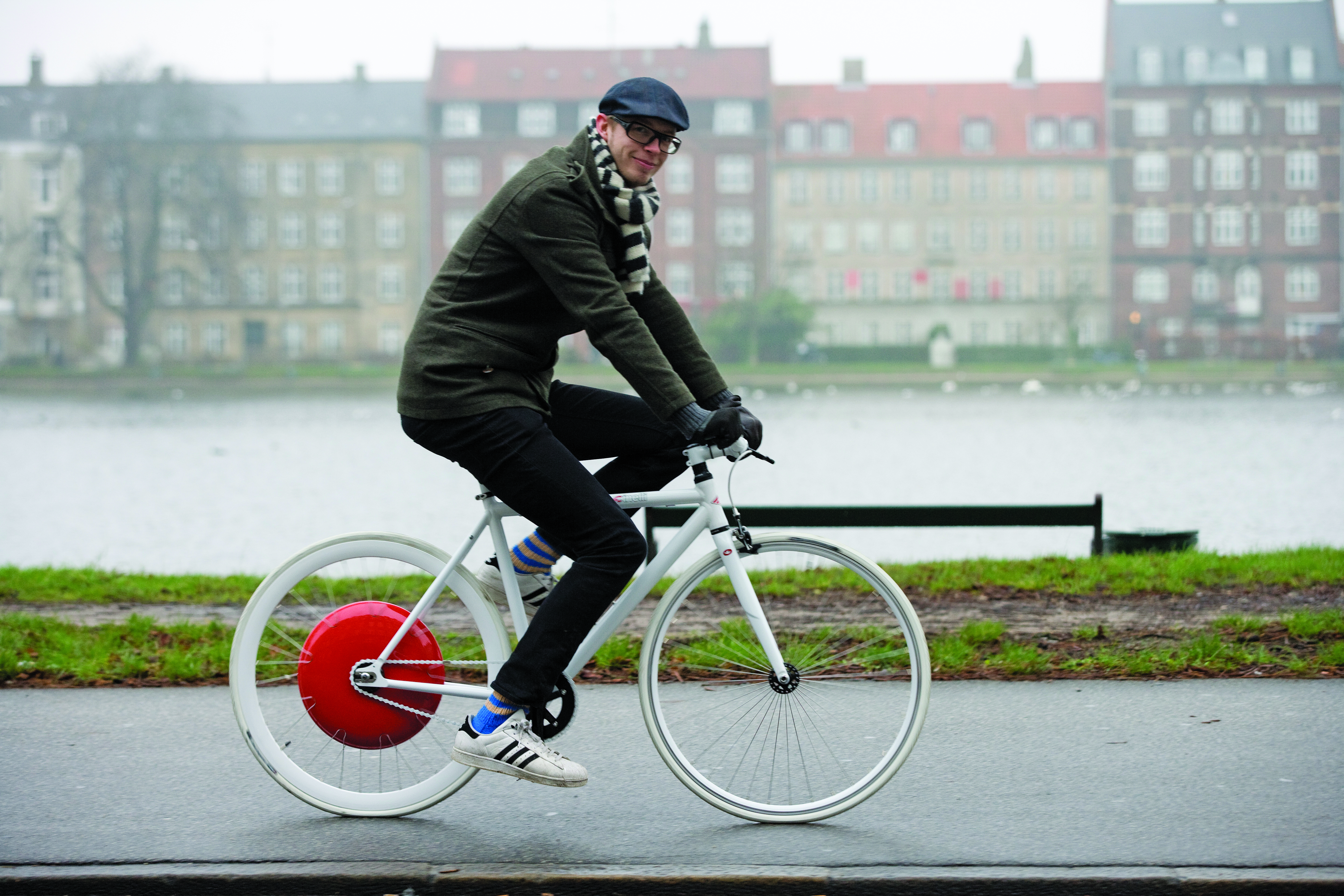Bicycle commuting is a growing trend in bigger cities across the country, and Chattanooga has seen its own growth among folks who live closer to the city center.
As the city's bike share system gains in popularity, the bike is being viewed as a fun way to get around in addition to being a good form of exercise.
But not everyone is looking for that much physical exertion as they travel to and from work or out to eat. And, frankly, not everyone is that excited about working up a good sweat before they reach their destination.
Enter the Copenhagen Wheel, a battery-assisted bicycle wheel developed at the Massachusetts Institute of Technology's SENSEable City Lab.
The wheel, which can be added to most standard bicycles, has an internal battery pack which gives a literal boost to riders on longer trips and when climbing hills. Using technology much like hybrid cars, the Copenhagen Wheel makes bike commuting easier on hot days and on tougher rides, reducing exertion and (hopefully) perspiration during the ride to work or out for shopping or dinner with friends.
The device-first introduced at the Copenhagen Conference on Climate Change in 2009-is expected to be available later this year. The Copenhagen Wheel project isn't the only battery-assisted wheel coming on the market. According to a recent article in the Boston Globe, a competing company, FlyKly - also slated to be available this year- is developing a similar product, prompting speculation from the Copenhagen Wheel's developer that FlyKly's backers have "borrowed" from the MIT team's work. FlyKly founder Niko Klansek denies that his product was influenced by the Copenhagen Wheel.
The projected retail price for the Copenhagen Wheel ($699) and FlyKly ($590) could prove an obstacle to being widely adopted. But for those who want to make use of their bike for more than exercise, both products offer an interesting alternative to driving or buying a dedicated electric bicycle.
The Rubbee
A British company is offering yet another option for powered bicycling.The Rubbee Drive is a self-contained unit that attaches to a bicycle's seat post and connects a friction drive to the rear tire to assist in driving the bicycle forward.The advantage of the unit is that it can be installed on a bike quickly - "less than a minute" according to the Rubbee website - and removed just as fast and carried to prevent theft of the unit while the bike is parked at a bike stand.The Rubbee has a handle for ease of carrying and can propel a bike at more than 15 miles per hour. To learn more about the Rubbee, visit rubbee.co.uk.

